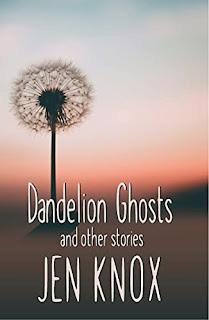Envision the strong
silent type. Seriously, close your eyes and see what you come up with.
To me, an automatic
association of the strong silent type is Don Draper, a man in a suit at a bar
with a cigarette, or maybe a man in a cowboy hat who kills bad guys and abides
by a twisted ethical code (Yes, I watch Justified. Rather miss it, actually),
or possibly a man with a sweet smile and dangerous stare. At a stretch, I
envision a shy drummer who is quiet but a known bad boy.
Notice the similarity? If you don't, another way to examine social associations with "the strong silent type" is to run the phrase through a search engine. Now do you see the pattern?
Growing up, I learned that the words strong and silent were only ever paired together
when describing men. Women, on the other hand, the women I grew
up admiring, seemed to naturally bear the burden of conversation. They were
supposed to be quick to verbalize whatever was right in front of them, or they were weak. They needed to speak, even if
said verbalizing seemed quite unnecessary.
In Kindergarten, I
didn’t talk a whole lot. I made friends with a girl named
Octavia, who was also rather quiet. We would have deep discussions about lizards, and when people would pick on us Octavia would put them in their place. She was quiet but no pushover. I’ve
lost touch with Octavia, but if she’s still around, I’d love to buy her a good
meal because she was a good friend and also because she was totally confident
in who she was long before I was. I felt as though something wasn’t quite
right about me.
I began to engage a
little more in grade school and found quite a few good friends, but I was still
relatively quiet. I wasn’t so much shy as contemplative, observant. “Why are
those girls giggling when the teacher is telling us about butterflies?” I’d
wonder. “This is interesting as shit!” Okay, I probably didn’t actually think
“interesting as shit,” but you get the idea. I would become annoyed when I
couldn’t hear the teacher or when my thoughts were overpowered by trivial
chitter chatter. I was called stuck up a few times by other kids and thought maybe it was true.
My parents often tried
to get me “out of my shell” by encouraging me to go out and play with the
neighbors like my sister did. I wanted to read and watch TV and experiment with
my science kit or my magic kit (I was fond of kits). When I finally did go out and
“play,” urged on by their insistence, I felt awkward and, to add to the weight
of my involuntary presence, I also began to feel slightly ashamed of having not
wanted to go out in the first place. What was wrong with me? Did I not know how
to really have fun? I thought a good book was fun. What was defective about me
to make me this way?
Since then there have been a lot
of books written about introversion that distinguish it from passivity. Here are a few:
The Introvert Advantage: How Quiet People Can Thrive in an Extrovert World by Marti Olsen
Laney
The Introvert's Way:Living a Quiet Life in a Noisy World by Sophia Dembling
Party of One: TheLoners' Manifesto by Anneli Rufus
Introvert Power: Why Your Inner Life Is Your Hidden Strength by Laurie A. Helgoe
Is it just me, or are these some mighty wordy
titles? Is there a strong positive correlation between introverts and the use of colons in titles?
Wordy titles or no, many of
these books are interesting. Some distinguish shyness from introversion, and
some claim a sort of spectrum on which introverts can sometimes display
extrovert behaviors or fall somewhere in the middle, being classified more
accurately as omniverts or ambiverts. I
bet the majority of people in the world would fall into some version of this
in-between, but the point is, all types are perfectly fine so long as they're content with who they are.
Introvert, extrovert,
omnivert or ambivert, I am proud to be a woman who considers herself the
strong, silent type. I am a woman who loves solitude and could (often) take or leave small talk. But I am also a woman who can deliver a good speech, who feels comfortable networking, who can
manage an event but can also find comfort in the click of my keyboard and the
sound of birdsong.
A woman can speak out when necessarily but she can also appreciate quiet moments and remain strong. Unique personalities exist for a reason. Meanwhile, I don’t find near enough
strong, silent women in stories, so I’d like to incorporate this subject into today’s
prompt.
Prompt: Write a story
about a woman protagonist who is the strong silent type. A protagonist who is
an observer doesn’t necessarily have to be passive—keep that in mind. In fact,
because she’s your protagonist, make her assertive as hell. Make her a hero. A
strong woman, of few words.

No comments:
Post a Comment